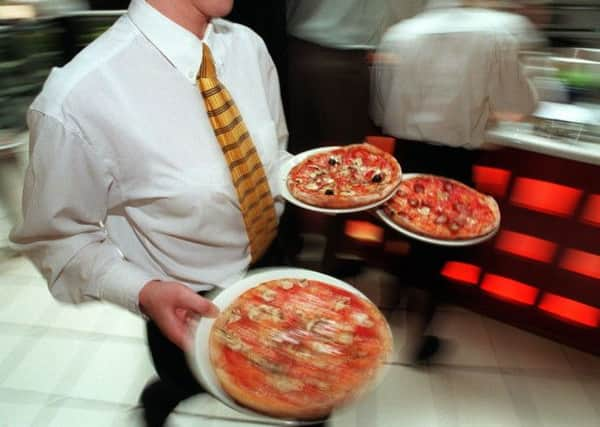Stephen Jardine: Welfare is in consumer hands


Tesco and other retailers are still paying the price for Horsegate and the backlash from consumers who bought something that turned out to be something else.
This week the Sun rekindled that sense of outrage with a story about Pizza Express serving halal chicken. The follow up in the Daily Mail carried the headline “Pizza Express reveal all the chicken they use is halal – but they don’t tell customers unless they ask staff”. So the staff know, and if consumers ask about the chicken they are told it is halal, plus it’s on the website. Not much of a secret then.
Advertisement
Hide AdAdvertisement
Hide AdDespite that, within hours campaigns were sparked calling for a boycott of Pizza Express on the grounds that it was “pandering to Islam”, as the Britain First website put it.
There is an issue of transparency here. Many people object to the treatment of animals during halal slaughter so clear acknowledgment of it on menus needs to take place. But just because the animal hasn’t bled to death from a cut throat while still alive, doesn’t necessarily mean we can carry on eating without a conscience.
According to the RSPCA, around 90 per cent of chickens reared for meat in the UK are kept to minimum welfare standards – which means each chicken has less space than a sheet of A4 paper.
Your average person doesn’t want to know that, which is why when you sit down in a restaurant, most menus these days go out of their way to tell you how organic or at least free-range their chicken is. Step into a fast food joint or big restaurant chain and it is a different story. As long as the price is right, we’re happy to look the other way.
Sascha Grierson is an organic chicken producer in Perthshire and she believes the solution lies in quality not quantity.
“Every time we eat meat an animal dies. We don’t need all that protein in our diet. We can eat less meat but better quality in terms of animal welfare and flavour and texture. Let’s have one portion of tasty, locally reared, free-range chicken every week rather than five tasteless portions that have been flown in from Thailand or wherever,” she says.
For consumers an understandable resistance in the past has been due to the higher price of chicken produced under better conditions, but that is changing. The big name discount supermarkets are now retailing free-range for less than a fiver. That doesn’t seem much to ask to ensure a better life for the meal on your plate. But as consumers move increasingly to better welfare chicken, fast food outlets and chain restaurants keep serving up cheap broiler birds to maintain the margin.
The solution lies with us. We need to ask where the meat on our plates comes from and halal or not, if we don’t like the answer, order something else.